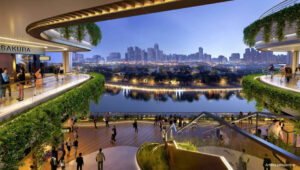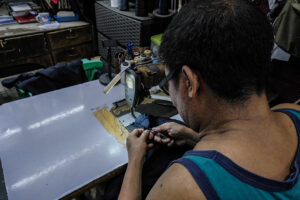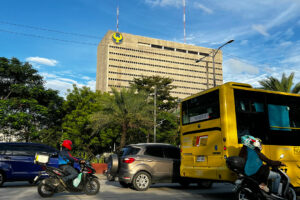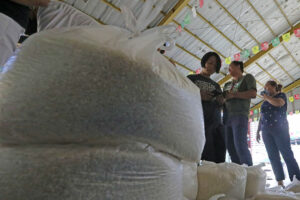By Arjay L. Balinbin, Corporate Editor
JAPAN’s Nomura Real Estate (NRE) Development Co. Ltd. said it expects the Philippines, a primary investment focus in Southeast Asia after Vietnam, to contribute up to 30% of its total overseas profit by 2031.
“With our current projections and assuming stable market conditions, we estimate that around 2031, the share of profit from FNG would be somewhere between 20-30% of the total profit of our overseas business we make, which is a substantial share,” Atsushi Ogata, executive officer of NRE’s overseas business division, said in an interview in Tokyo last week.
In 2022, NRE and Federal Land, Inc., the property arm of the Ty-led conglomerate GT Capital Holdings, Inc., established Federal Land NRE Global (FNG) to develop real estate in the Philippines permanently.
FNG, which hopes to create 6,000 job opportunities in the Philippines within the first five years of its operations, said it aims to integrate NRE’s innovation, technology, and design with Federal Land’s knowledge of the Philippine market.
Federal Land’s projects include GT Tower International in Makati, Marco Polo Plaza and Marco Polo Residences in Cebu. They also include the Metro Park, a 36-hectare integrated community in the Bay Area, and the Grand Central Park, a 10-hectare township in Bonifacio Global City (BGC), featuring the Grand Hyatt Manila and Grand Hyatt Manila Residences.
Federal Land’s first project with NRE is The Seasons Residences, a four-tower high-end residential development in BGC.
“FNG has four development sites in Metro Manila and Cebu Island, with a total project cost of approximately $5 billion,” said Masato Yamauchi, director and head of NRE’s overseas business division. The FNG project encompasses an initial lineup of residential, office, commercial, and industrial facilities.
The partnership has also brought the first Mitsukoshi, an international department store chain headquartered in Tokyo, to the Philippines.
NRE, currently the largest developer in Japan in terms of condominium unit turnover and the fifth largest in consolidated sales, regards its global business as a significant driver of growth.
The company, with a diverse portfolio including residences, offices, retail spaces, logistics facilities, and hotels, plans to invest approximately JPY 550 billion in its overseas ventures by March 2031 and aims to generate more than 15% of its total profit from its international operations.
As of last year, NRE had an investment balance of JPY 140 billion in its overseas business — 19% for the Philippines, 5% for China, 10% for the United Kingdom, 1% for the United States, and 50% for Vietnam. This makes the Philippines the second largest recipient of NRE’s investments in Southeast Asia.
NRE is currently expanding its overseas portfolio into additional countries.
In Southeast Asia, Mr. Ogata said that Vietnam’s earlier market entry and larger population “naturally” led to higher investment there.
“We started the Vietnam business many years before the Philippines, so it’s natural to have a larger amount of investment. Also, the population of Vietnam is larger, making it a big market,” he said.
Mr. Ogata also noted the need to recognize the distinct differences between the Philippine and Vietnamese markets when comparing NRE’s ventures in both countries.
“Both are rapidly developing but with unique characteristics. For instance, in Vietnam, we don’t have any capital restrictions, so if we would like, we can invest hundreds of percent into a foreign project,” he said.
NRE’s projects in Vietnam include Zen Plaza, Sun Wah Tower, Phu My Hung Midtown, and Vinhomes Grand Park, all in Ho Chi Minh City, as well as the Ecopark Project in Hanoi.
The Philippines holds significant potential, Mr. Ogata noted. “The Philippine market, with its large population, is strategically important for us.”
The company employs the Japanese principle of “kaizen,” or continuous improvement, to refine its business practices and product offerings.
“Through kaizen, we’ve refined sophisticated methods in Japan that we can apply to the Philippine market,” Mr. Ogata said, highlighting the company’s tailored strategy to meet local needs at every project stage, from planning and design to construction and delivery, aiming to enhance overall value and quality.





